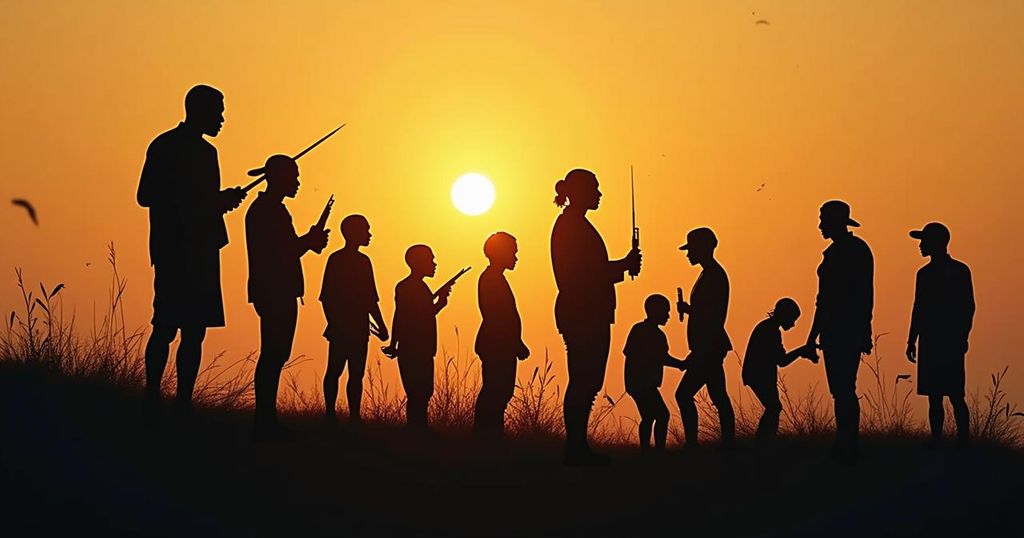Escalating Human Rights Violations in the Democratic Republic of Congo: A Call for International Action
Human rights experts report a significant decline in human rights conditions in the Democratic Republic of Congo, marked by escalating armed conflicts, violence against civilians, and pervasive sexual abuse. U.N. High Commissioner for Human Rights Volker Türk emphasized the need for international attention and intervention. The DRC government has called for the withdrawal of foreign troops and criticized external support for armed factions, while U.N. peacekeepers face potential withdrawal amid rising violence.
Human rights experts have expressed deep concern regarding the worsening human rights conditions in the Democratic Republic of Congo (DRC). During an address at the United Nations Human Rights Council in Geneva, U.N. High Commissioner for Human Rights Volker Türk highlighted the dire situation, which is exacerbated by armed clashes, violence against civilians, and widespread sexual abuse. He emphasized the urgent need for the international community to focus on the plight of the Congolese people, particularly in light of ongoing conflicts driven by a combination of local violence, international interests, and weak governance. Mr. Türk reported a rise in the number of human rights violations, predominantly attributed to armed groups operating in the eastern regions of the country. These groups are responsible for heinous actions including attacks on civilian infrastructure—schools and hospitals among them—and the distressing escalation of sexual violence, despite existing preventive measures. He remarked, “The armed groups take people prisoners, subject women and girls to sexual slavery. Many of them have been killed after being raped. These cases, of course, have not all been reported. This is atrocious.” The High Commissioner also addressed concerns regarding violations perpetrated by the DRC’s security forces amid military efforts to combat these armed groups, as well as the proliferation of hate speech contributing to rising political tensions. He called upon influential nations to leverage their power to halt the conflict, particularly pointing out the need for any external support, notably from Rwanda, for groups like the M23 to cease. In response, DRC Minister of Human Rights Chantal Shambu Mwavita defended her government’s record on human rights, asserting progress despite the eastern conflict. She criticized foreign influences, particularly Rwanda, for their alleged backing of armed factions and urged stronger international condemnation and sanctions against such actions. Mwavita linked the ongoing violence to external exploitation of the DRC’s natural resources, advocating for the withdrawal of Rwandan troops from Congolese territory. The conflict-embroiled eastern provinces, characterized by competition over valuable resources, continue to suffer from endemic violence. Rwanda has consistently denied accusations of supporting the M23 rebels, although its Foreign Minister expressed frustration with the DRC government over unresolved agreements. Notably, Rwanda’s ambassador to the U.N. also underscored the importance of dialogue and condemned the violence—particularly against children—in the region. As the DRC navigates these challenges, questions loom over the future role of U.N. peacekeepers in stabilizing the situation, especially in the context of recent calls for their withdrawal. Bintou Keita, the U.N. special representative in the DRC, highlighted the severity of human rights violations amid the deteriorating security landscape and reaffirmed MONUSCO’s commitment to supporting human rights compliance in the DRC.
The Democratic Republic of Congo has experienced severe human rights issues exacerbated by decades of conflict and instability, particularly in the eastern provinces. Armed groups have long fought for control over the region’s rich natural resources, resulting in widespread violence and civil rights infringements, including sexual violence and attacks on civilians. The involvement of external actors, such as Rwanda, has further complicated this situation, prompting international calls for accountability and intervention. The U.N. Human Rights Council has sought to address these humanitarian crises, bringing global attention to the plight of Congolese citizens and the urgent need for solutions to this complex crisis.
The situation in the Democratic Republic of Congo remains critical as violence continues to escalate, leading to severe human rights abuses and humanitarian crises. The international community faces calls to intervene and support Congolese civilians against a backdrop of internal strife compounded by external influences. The ongoing challenges posed by armed groups and the implications of foreign support demand urgent attention and action to restore stability and promote human rights in the region.
Original Source: www.voanews.com




Post Comment